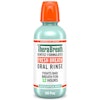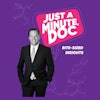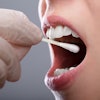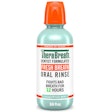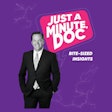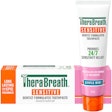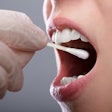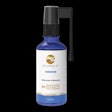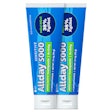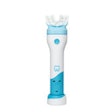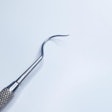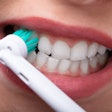I’d like to make my thesis statement loud and clear: Xerostomia is on the rise, and we haven’t done enough about it. Yet.
 Melissa K. Turner, RDH.
Melissa K. Turner, RDH.
Shockingly, most patients don’t know they suffer from dry mouth.
Shockingly, most patients suffer with dry mouth daily.
Shockingly, most dental professionals do not discuss xerostomia regularly.
It’s time to stand up to xerostomia!
In my clinical career, I’ve often found my patients fall into one of four categories. The first category includes patients who have adequate salivary flow -- typically young, healthy, and prescription-free.
The second category includes patients who understand they have decreased salivary function and rely on dry mouth relief products, but they still can’t find true relief. This category includes patients undergoing cancer treatment, those taking popular weight-loss drugs, or women facing hormonal changes through menopause.
The third category includes patients who recognize the symptoms of dry mouth but don’t know why it’s happening. Often, these patients have occasional and sporadic dry mouth due to recreational marijuana use or excessive caffeine or alcohol intake.
The final and largest category includes patients who regularly have dry mouth symptoms but simply don’t know it. Often, they chalk it up to a “normal” part of their life. It is common for patients to not recognize symptoms until experiencing roughly 60% dysfunction in their salivary glands.
For a long time, scientists have seen saliva as a mirror to the state of the body’s health. Conversely, dental clinicians often take saliva for granted. We stuff vestibular spaces with cotton rolls, remove saliva through dental suction systems, and blast air to desiccate the hard tissue simply so we can have a dry workspace.
However, it is good to remember that saliva is a complex medicinal fluid that positively impacts not only our oral health but our systemic health as well.
Saliva’s commonly known roles include initiating digestion, lubrication and solubilization of food, and cleansing of the teeth and oral mucosa. With an increase of saliva testing products recently hitting the market, we’re now understanding saliva to be as useful as blood. For example, did you know that, unlike blood, salivary analysis looks at the cellular level, thus making it a true representation of clinical relevance? In comparison, blood analysis only looks at protein-bound compounds as they travel through the blood.
Recently, a new dry mouth relief technology was introduced to the market that uses oxidized glycerol triester (OGT) technology. In the 1950s, Professor Baranger, a member of the research team at the Institut Pasteur in France, discovered that the natural oxygenation process of certain vegetable oils brought about a fundamental change in the molecular structure of oils, transforming them into a lipid-based substance with therapeutic properties.
Aquoral Protective Oral Spray is a patented prescription-based spray that uses OGT, which bonds to the mucous membranes and forms a protective film throughout the oral cavity. The lipid film lubricates the oral cavity and prevents the loss of moisture from the tissues and compounds on itself with regular use. As a bonus, Aquoral works in tandem with your current xerostomia therapies, including salivary substitutes, water-based sprays, and saliva-inducing tablets and chews.
In partnership with the Aquoral team, I’ve made it my professional mission to raise awareness of the significant spike in xerostomia incidences in our country. A silent epidemic, the negative impact that dry mouth has on both quality of life and total systemic health for individuals and communities is devastating.
As a first step, we recently launched the personalized xerostomia protocol (PXP), a tool that both acts as a chairside supplement to assist with patient education and helps implement a comprehensive xerostomia protocol -- and professional standards -- in your dental practice.
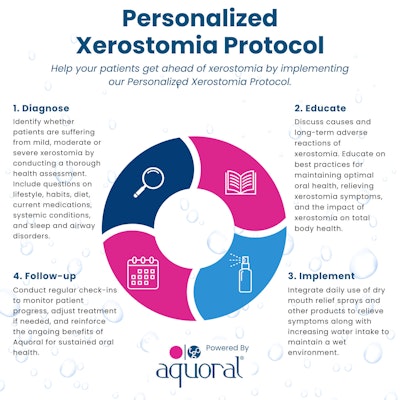 The Aquoral Xerostomia Protocol, a four-step guide for diagnosing, educating, implementing, and monitoring dry mouth treatment. Image courtesy of Aquoral.
The Aquoral Xerostomia Protocol, a four-step guide for diagnosing, educating, implementing, and monitoring dry mouth treatment. Image courtesy of Aquoral.
Xerostomia is significantly spiking this year and will continue to in the near future. It's time for dental professionals to take a stand by educating every patient on dry mouth symptoms, causes, and therapies available. A great place to begin is by implementing the PXP tool in your practice so your patients and communities can lead happier and healthier lives!
Top causes of xerostomia
More than 1,100 known prescriptions and other over-the-counter drugs, including weight loss drugs, antihistamines, decongestants, antidepressants, antipsychotics, and some medications used to treat high blood pressure and Parkinson’s disease, cause dry mouth.
Other factors that play a role in xerostomia include:
- Systemic diseases, including autoimmune diseases and diabetes
- Neurological conditions such as Parkinson’s disease, multiple sclerosis, and amyotrophic lateral sclerosis
- Cancer treatments, including chemotherapy, immunotherapy, and radiation treatment
- Medical and recreational marijuana and tobacco use (including vaping)
- Hormonal changes due to menopause and perimenopause
- Sleep apnea as well as the use of continuous positive airway pressure machines
- Dietary habits, including caffeine and alcohol consumption and dehydration due to inadequate fluid intake or heavy exercise
Editor's note: References are available upon request.
Melissa K. Turner is the senior executive consultant and chief hygiene officer at Cellerant Consulting Group. She leads the Cellerant Best of Class Hygiene Awards. She is a founding board member of the American Mobile & Teledentistry Alliance and co-founder of the Denobi Awards and the National Mobile & Teledentistry Conference. Turner's newest launches include Smile Proud, an advocacy organization built to support current and future LGBTQIA dental professionals, as well as "I, Woman," a podcast for women founders, executives, and entrepreneurs. Turner can be reached at www.MelissaKTurner.com.
The comments and observations expressed herein do not necessarily reflect the opinions of DrBicuspid.com, nor should they be construed as an endorsement or admonishment of any particular idea, vendor, or organization.
